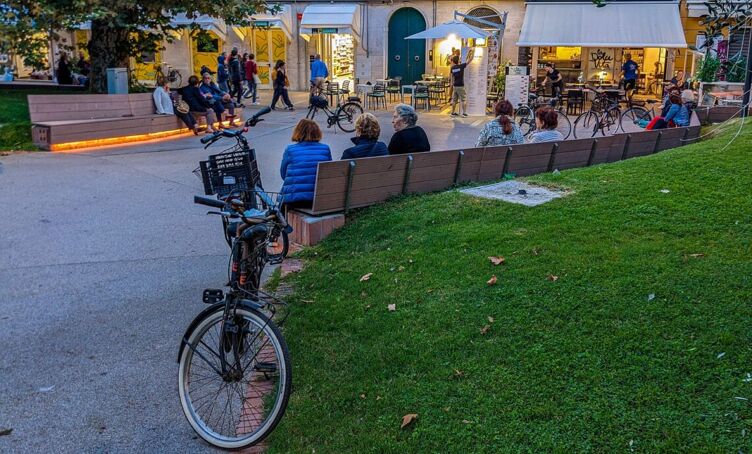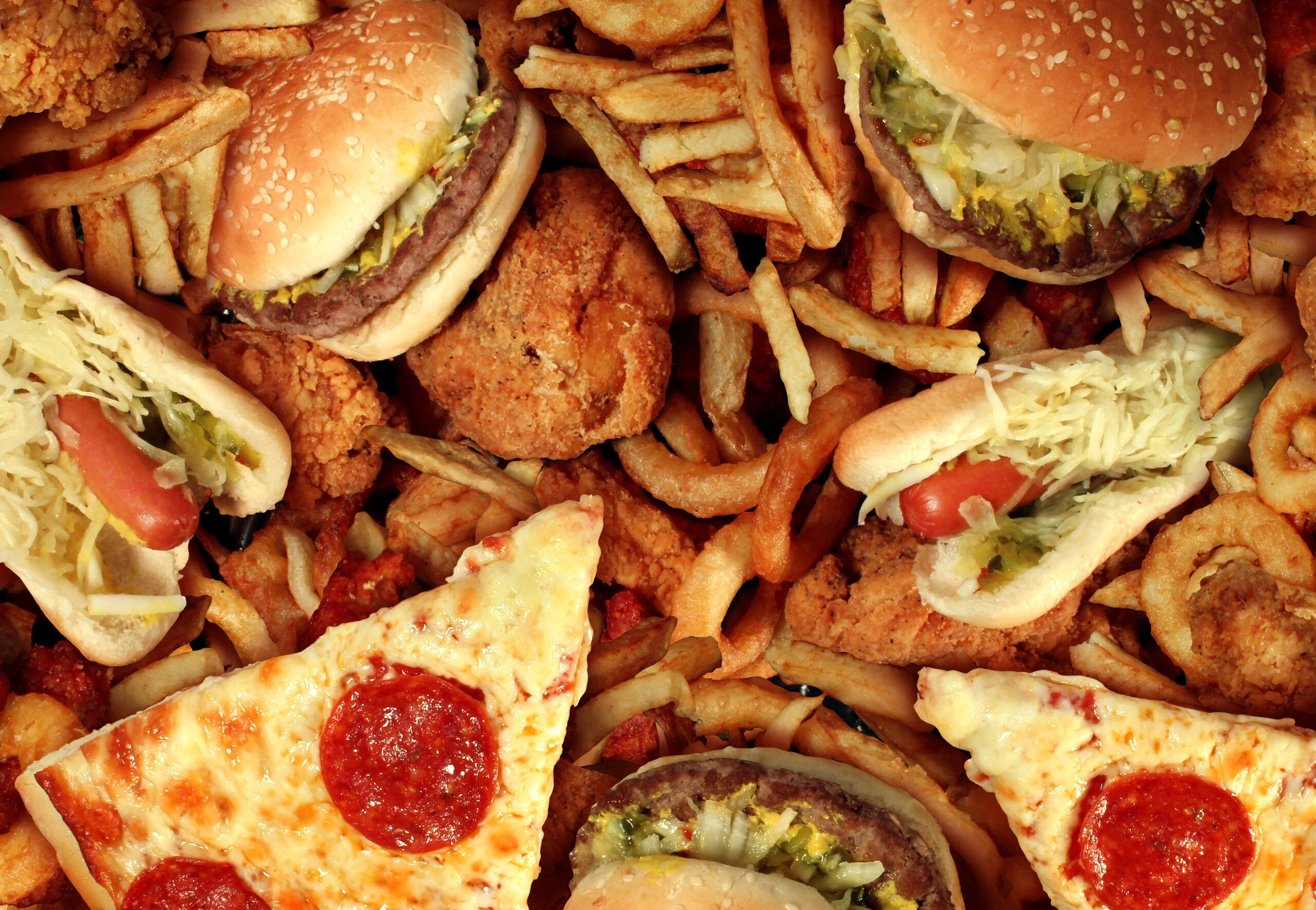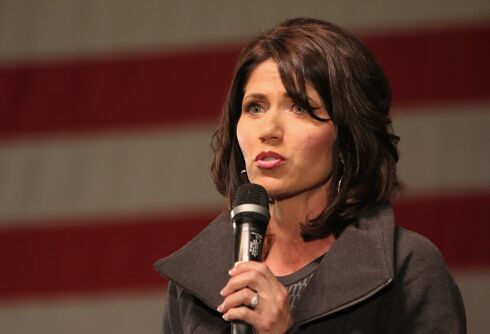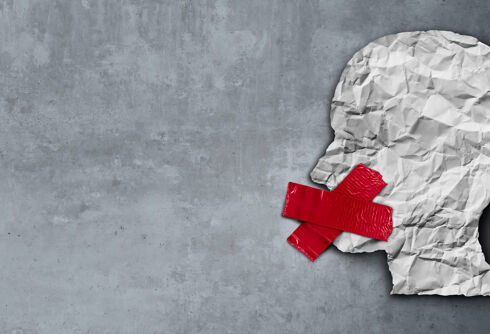When I was a teenager, I weighed 225 pounds, which is 60 pounds more than I do now.
Because my middle name is Gordon, the kids used to call me “Gordo” — Spanish for fat.
Related:
Getting stuck in mud as a kid helped make me a confident adult. Kids today need space to fail too.
It saddens and concerns me that many of today’s kids aren’t allowed the incredible freedom my friends and I had to do really stupid things.
During my teen years, my parents tried different ways to get me to lose weight. My father made me play football. I wasn’t any good, but the coach put me on the offensive line because he said at least a fat kid like me would be harder for the other team to get around.
Dive deeper every day
Join our newsletter for thought-provoking commentary that goes beyond the surface of LGBTQ+ issues
At first, my mother tried encouragement. But as the pounds mounted, so did her frustration. Patience gave way to humiliating comments. As we shopped in the husky boys’ section, she’d say, “I hope you’re happy having to shop here.” Or, “If you just ate less, you wouldn’t have to wear fat-sized clothes.”
None of this worked, except to make me hate my body and feel terrible about myself.
I did manage to lose some weight during my senior year of high school as an exchange student in Australia. But during my freshman year of college, I put it all back on and then some.
Finally, before my sophomore year of college, I decided I had a choice: continue to get larger and larger for the rest of my life or take control of the situation.
I decided to become healthier: I joined a gym and dramatically changed how I ate.
I also dropped those sixty pounds. I’ve kept it off for the past forty years.

I’ve been thinking about this lately, because my husband, Brent and I recently spent six weeks in America.
I was reminded that in the U.S., food is everywhere — and it’s often unhealthy and comes in massive portions.
I hadn’t eaten a donut in years, but in America, I was twice confronted with huge boxes of truly amazing-looking ones. Once visiting a friend, she opened the largest bag of potato chips I’ve literally ever seen. Yes, it came from Costco.
I did have some donuts. And I also ate more chips than I should have.
Hey, I’m only human. Donuts and chips are delicious.
Brent and I also ate out a lot while in America. That usually meant being served breathtakingly large portions: giant plates of yakisoba, massive burritos, and heaping plates of pasta.
And I haven’t even mentioned the desserts: the super-sized bags of candy and the huge scoops of ice cream.
But this is only part of the picture. Unlike almost the entire rest of the world, America and American cities are designed around cars.
In most other countries, you have to be active. If you don’t walk down to the market, you don’t eat dinner — in part because other cultures value freshness more than America and in part because that smaller apartment kitchen probably isn’t big enough to store very much food.
In America, by contrast, since you need to drive everywhere anyway, being active is absolutely optional and very easy to avoid.
Even parks are different in America. Brent and I work out together every other day, and since Covid, we’ve mostly been doing it outside, in parks.
In most of the rest of the world, communities are centered around parks, which is where the community frequently gathers. When we lived in Levanto, Italy, last year, the park in the center of town was almost always busy.
But come evening, it was downright mobbed as everyone turned out to visit with friends and family. Kids ran around playing while the adults strolled together talking.

In America, by contrast, parks tend to be shunted off to one side, kind of an afterthought, in order to make way for, yes, more roads and cars. It’s no wonder the parks are usually much less crowded than in Europe.
Not shockingly, since being back in America, I have gained weight.
So, I’m not at all surprised that nearly 43% of all adult Americans are now obese (and an additional 30% are merely overweight).
When Brent and I discussed the topic recently, he said something interesting: “If that many people in a country have the same problem, then the fault isn’t with individuals. It’s with the society or its government.”
And he’s right. No one looks at Pakistan, where 41% of the country is illiterate and says, “Geez, clearly those illiterate folks just need to try harder to read.”
So is it fair to look at these 43% of Americans and say, “Man, those people just need to eat less?”
I don’t mean to sound flippant by making this comparison. America is far richer than Pakistan, and being unable to read is not the same as being overweight. But I do think the problems in both countries stem from societal issues that have little to do with individuals and their willpower or willingness to work hard.
I love a lot about the body-positivity movement. I think it’s great that fat-shaming is now far less acceptable and that celebrities like Lizzo and Mindy Kaling are expanding our notions of what’s “attractive.” Everyone deserves to feel good about themselves.
And, of course, being heavy doesn’t necessarily mean being unhealthy.
And yet, I’m also troubled.
American weights are continuing to rise year after year. So are rates of diabetes, as well as the incidents of strokes and heart failure related to obesity.
And just because you can be fit at almost any weight, doesn’t mean many people are.
Brent and I walk and hike a lot, but when we’re out and about, we rarely see large people. And in almost every American grocery store, we see people so overweight they need scooters just to get around.
American society has a very obvious problem. Is that still okay to say?
Despite Brent’s point, society probably isn’t changing any time soon. There’s too much money in the status quo.
So it all falls back onto the individual, which isn’t fair.
“Body-positivity” offers one solution: Accept things the way they are. For fat folks, a stable weight is often healthier than a constantly yo-yoing one. Yes, if waistlines continue to grow, society may be less healthy overall, but at least fat people will feel less shame and be less miserable.
And that’s a very good thing.
I still carry with me the humiliation and shame of my former fatness. Until we became nomads six years ago, I used to weigh myself almost every single day. My mood always depended at least a little on where my weight stood. To this day, I never go shirtless in public because of how much I hate the idea of people seeing my stomach.
I truly get how much damage a fat-phobic society can inflict on a person.
Also, in fairness to the fat positivity movement, statistics on losing weight are grim. Traditional diets often don’t work (although some well-meaning fat activists also overstate the difficulty of losing weight).
But, of course, it’s always possible to live a healthier lifestyle. If someone wants to do that, I think we should do what we can to support them.
Do you want to be more fit? It’s your life, and it’s not any of my business if you prefer yourself exactly the way you are.
But if you are unhappy with your current situation and want to change, here’s advice from someone who did:
- Focus on fitness, not weight. In fact, throw away your goddamn scale. I stopped weighing myself when we became nomads, and it’s one of the best decisions I ever made.
- Walk everywhere you possibly can. I take a walk almost every single morning, and it’s a great and simple way to stay active. Once you start feeling more fit, you might very well be inspired to take up jogging, swimming, hiking, or some other activity. If at all possible, avoid living in the suburbs.
- Tear up your Costco card. I get how convenient it is to buy in bulk. But too often buying in bulk leads to eating in bulk.
- Avoid processed food. If it doesn’t look like actual food, then it probably isn’t anything you should be putting in your body.
- Don’t expect yourself to be perfect. I still eat something crappy most days. But I mostly eat healthy things. And I walk, walk, walk.
In a way, I’m lucky. I’m about to leave America again, to continue my life as a nomad. That means I’ll be living in cities designed for people, not cars, so I’ll be walking more and almost never driving.
I’ll be back to eating smaller portions, and the food will generally be healthier and less processed.
And I’ll be living in countries where corporations haven’t been given complete freedom to manipulate me into eating and buying more.
In the end, I think Americans generally have more choices on this issue than they think. I said it before, but almost anyone can choose to be healthier.
Then again, I already made that choice, so maybe it’s easy for me to say.
Michael Jensen is an author, editor, and one half of Brent and Michael Are Going Places, a couple of traveling gay digital nomads. Subscribe to their free travel newsletter here.
















It’s really hard to be healthy in America